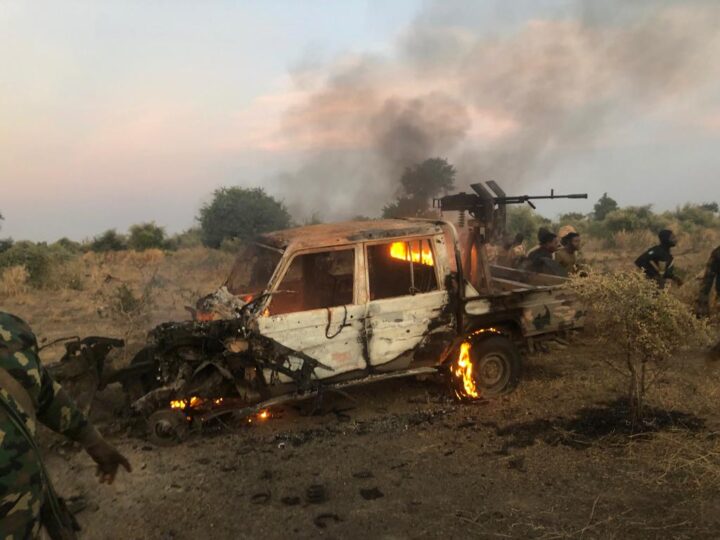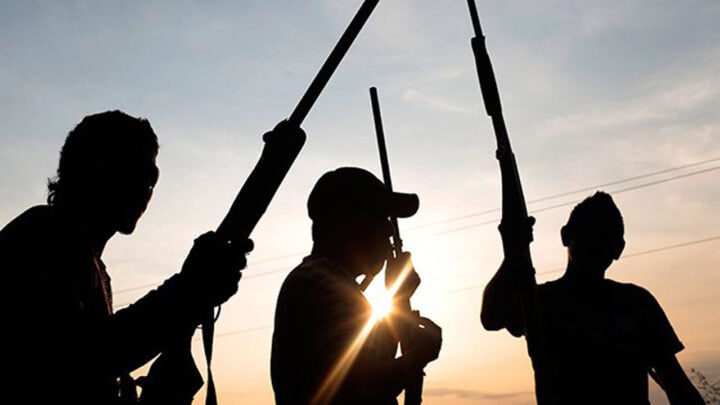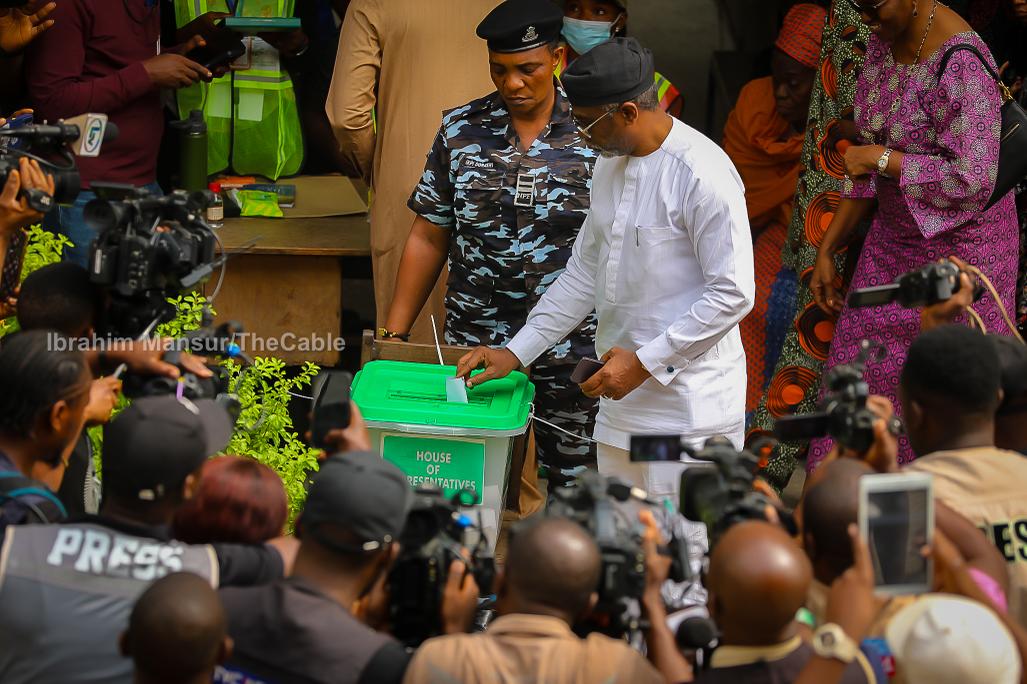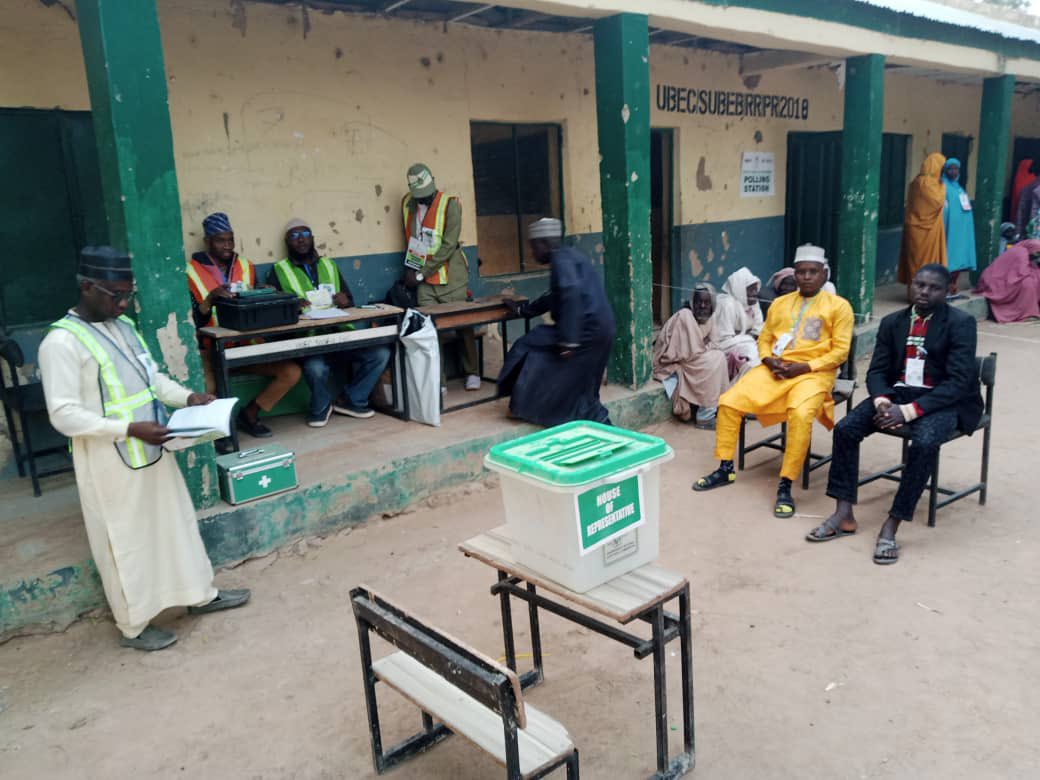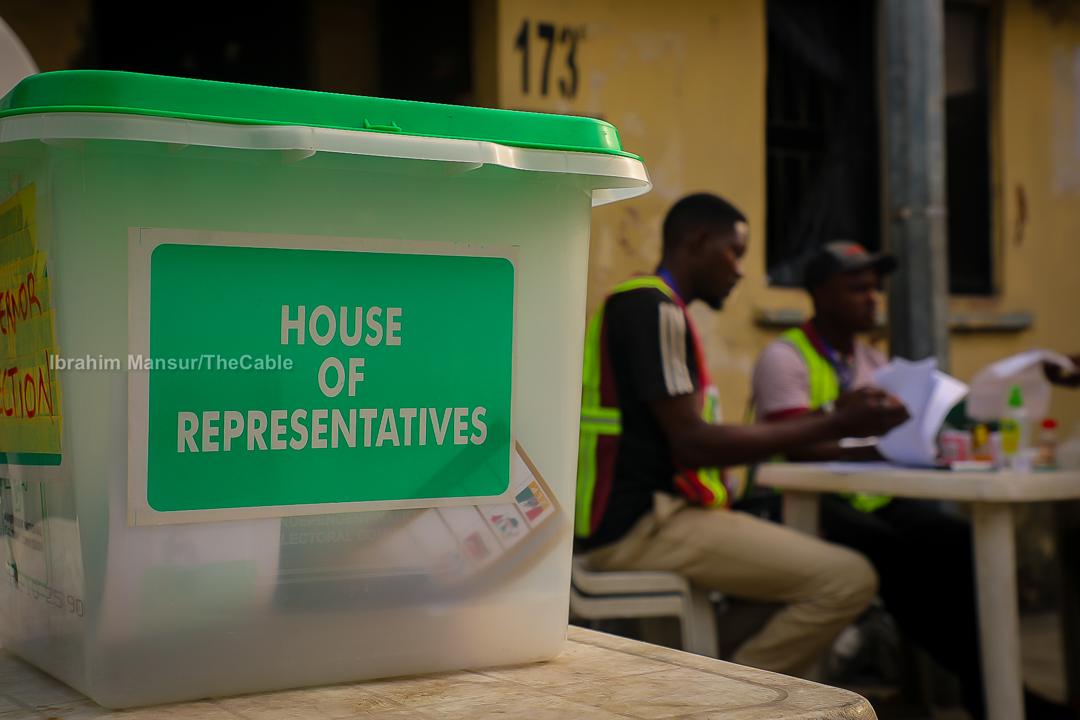BY SAMAD UTHMAN AND AYODELE OLUWAFEMI
The year 2023 was another unforgettable one for Nigerians. Terrorists and bandits wreaked havoc in the northern region of the country; criminal elements did not spare the south-south and south-west zones; and separatist militant groups continued their ritual bloodletting in the south-east zone. This summed up the experiences of many Nigerians in the hands of non-state actors in 2023.
According to data sourced from the National Security Tracker (NST), an initiative of the Council on Foreign Relations (CFR), and the Armed Conflict Location & Event Data Project (ACLED), 3,841 people were reported to have been killed by non-state actors, while 4,243 others were kidnapped in 2023.
The data is from cases of killings and abductions reported by the Nigerian and international media platforms from January to December 2023. This implies that this data project did not include cases of murders and kidnappings that were not publicised by the media. It is noteworthy to state that many cases of killings and abductions in Nigeria usually go under the radar of the media. This data project focuses on the activities of non-state actors.
Advertisement
TheCable Index, the data and research arm of TheCable, excluded the killings carried out by security operatives and the deaths of suspected criminals like kidnappers, armed robbers, bandits, and Boko Haram/ISWAP fighters.
The findings of the data projects showed that an average of 11 Nigerians were killed and 12 people kidnapped daily in violent attacks reported in the media in 2023.
The media reports analysed for this data project have been compiled here.
Advertisement
KEY POINTS
- 3,841 people were reported to have been killed in 2023.
- 4,243 people were reported to have been kidnapped in 2023.
- 3,387 civilians, 200 soldiers, 116 police officers, 106 vigilantes, 17 civil defence corps, 4 security guards, 4 VIO officers, 3 customs officers, 2 immigration officers, 1 NDLEA officer, and 1 prison warder were reportedly killed in the period under review.
- The month of November recorded the highest number of reported killings with 488 deaths, while January had the least with 179.
- Plateau state had the highest reported death toll, with 502 casualties.
- Jigawa and Gombe recorded the lowest reported death toll, with two casualties each.
- The northern region of the country accounted for 83.8 percent of the reported killings in the country in 2023, while the southern region accounted for 16.2 percent.
- The north-central geopolitical zone recorded the highest number of reported killings.
- The south-west geopolitical zone recorded the least number of reported killings.
- Zamfara recorded the highest number of reported abductions, with 854 victims.
- Yobe, Bayelsa, and Gombe recorded the least number of reported abductions, with two victims each.
PLATEAU, BENUE, BORNO, ZAMFARA TOP LIST OF KILLINGS
In the data analysed by TheCable Index, Plateau, Benue, Borno, and Zamfara topped the list of killings in the 36 states of the federation and the federal capital territory (FCT).
The aforementioned states witnessed a high magnitude of violent attacks perpetrated by Boko Haram and ISWAP fighters, bandits, and other criminal elements.
Advertisement
In Plateau, a state in the north-central region of the country, renewed ethno-religious crises deteriorated the security situation in the state.
Plateau recorded the highest number of reported killings with 502 deaths, followed by Benue with 482 deaths, and Borno and Zamfara recorded 421 and 376 deaths, respectively.
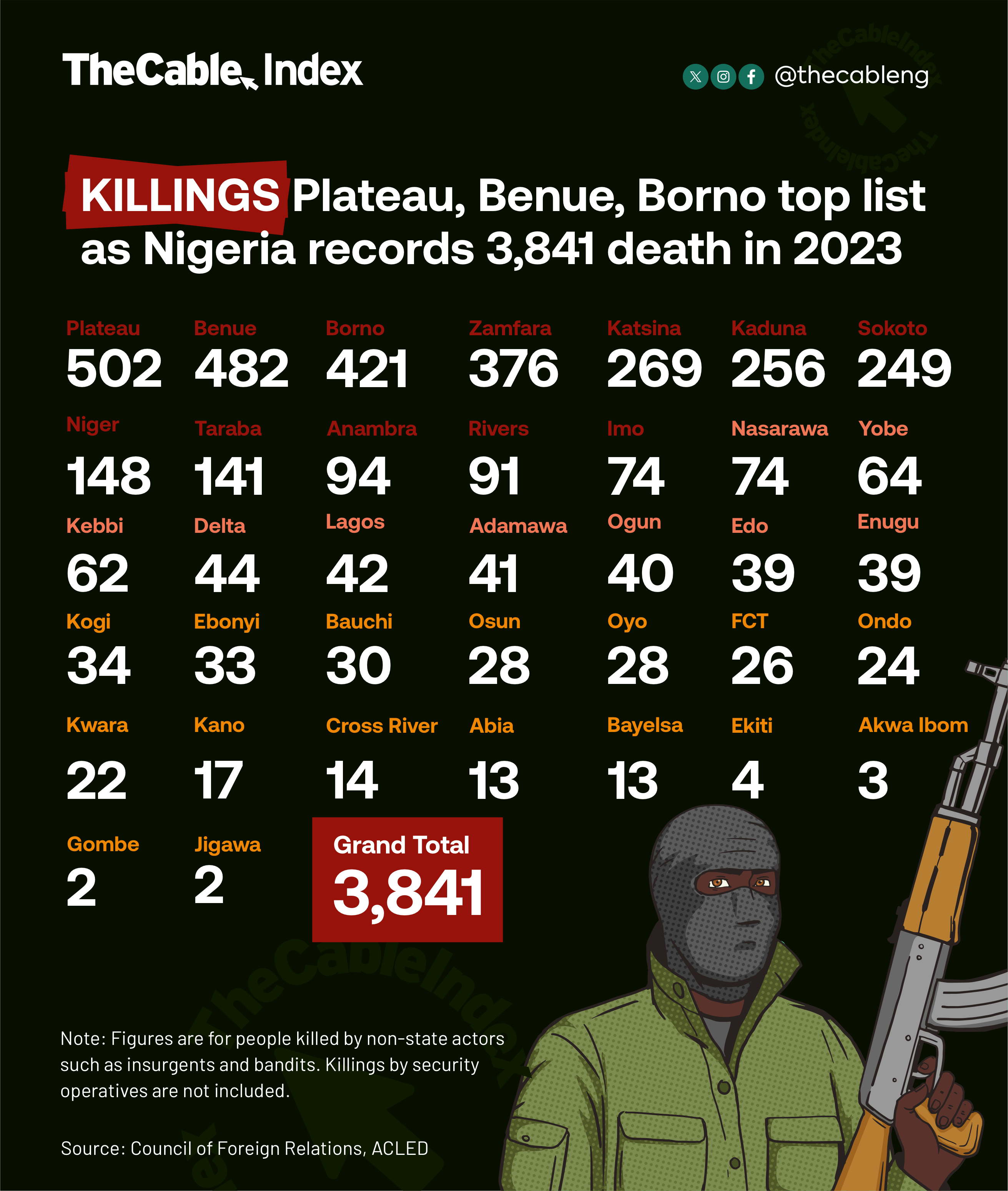
It was observed that Plateau recorded a large number of violent attacks when compared with 2022 where it came 5th with 274 deaths throughout the year.
Advertisement
Further analysis showed that Jigawa and Gombe recorded the least number of deaths by non-state actors with two casualties apiece, closely followed by Akwa Ibom with three deaths, while Ekiti recorded four casualties.
Based on the data analysed, November was the bloodiest period in the year 2023 as 488 people were killed by non-state actors, representing 12.7 percent of the total reported deaths. Within the same month, 554 people were reported to have been kidnapped.
Advertisement
April came in second with 441 deaths, June came in third with 390, and March came in third with 328 deaths.
| Month | Total killed |
| January | 179 |
| February | 280 |
| March | 328 |
| April | 441 |
| May | 372 |
| June | 390 |
| July | 312 |
| August | 270 |
| September | 187 |
| October | 275 |
| November | 488 |
| December | 319 |
| Total | 3841 |
Table showing month by month reported killings in 2023
Advertisement
CIVILIANS SUFFERED MOST OF THE ATTACKS
During the year under review, civilians suffered most of the violent attacks perpetrated by non-state actors, with 3,387 deaths, representing 88.2 percent of the total reported deaths. This is 585 casualties less of what we recorded in 2022.
Advertisement
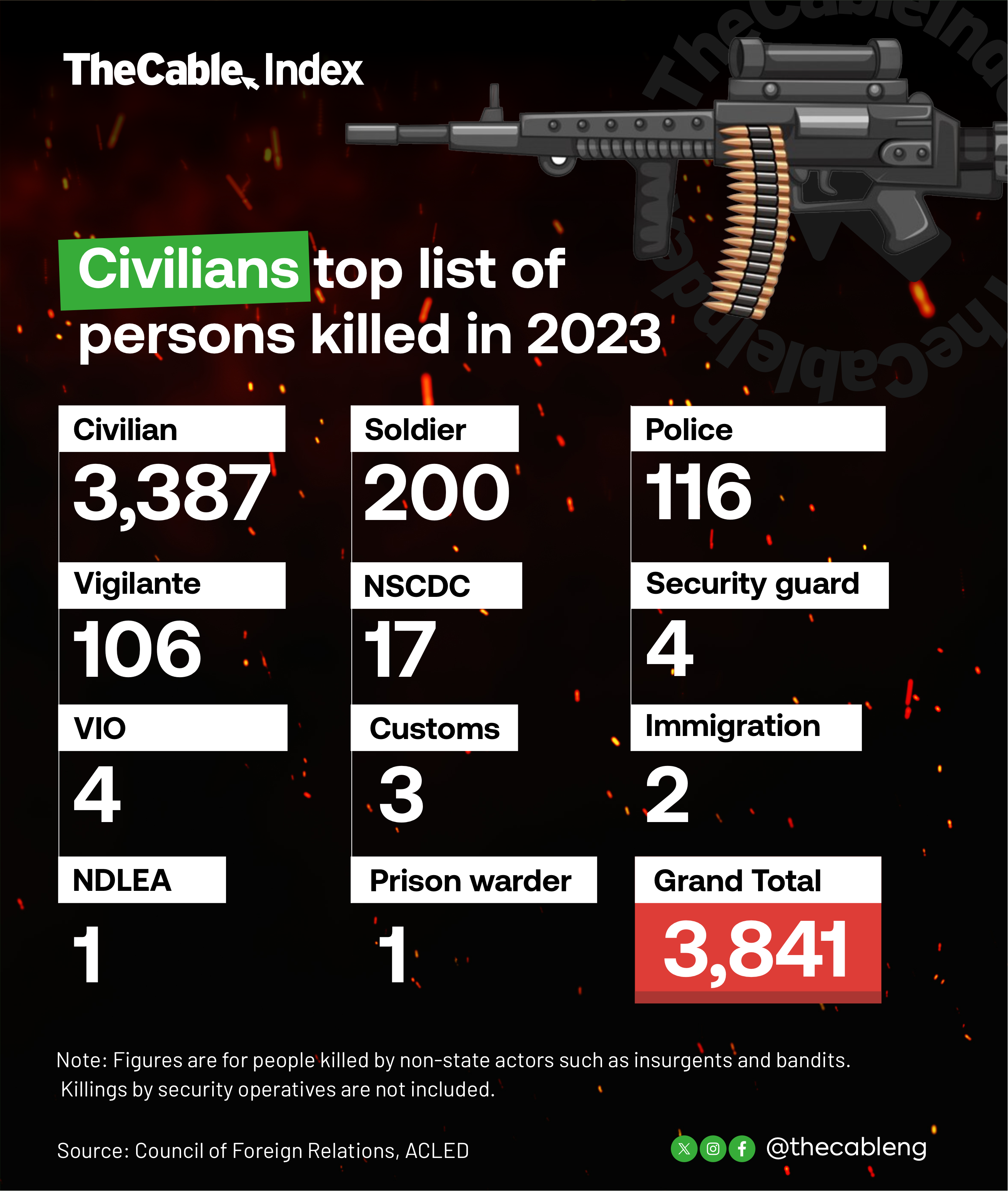
Those at the forefront of defending the country against non-state actors equally suffered casualties. About 200 military personnel, 116 police officers, and 106 vigilantes were reported to have been killed in 2023. Other security agencies like the Nigerian Immigration Service, the Nigeria Security and Civil Defence Corps (NSCDC), and the Nigeria Customs Service also suffered a few casualties.
REIGN OF TERROR SHIFTS TO NORTH-CENTRAL
The data analysed showed that the north-central zone recorded the highest number of casualties, with 1,288 people reported to have been killed by non-state actors in the year under review.
TheCable Index observed that the north-central zone displaced the north-east and north-west from the top spot of reported killings in Nigeria when compared to the previous years.
The north-west came second with 1,231 reported deaths, followed by the north-east zone with 699 casualties. The northern region of the country accounted for 83.8 percent of the reported killings in the country in 2023.
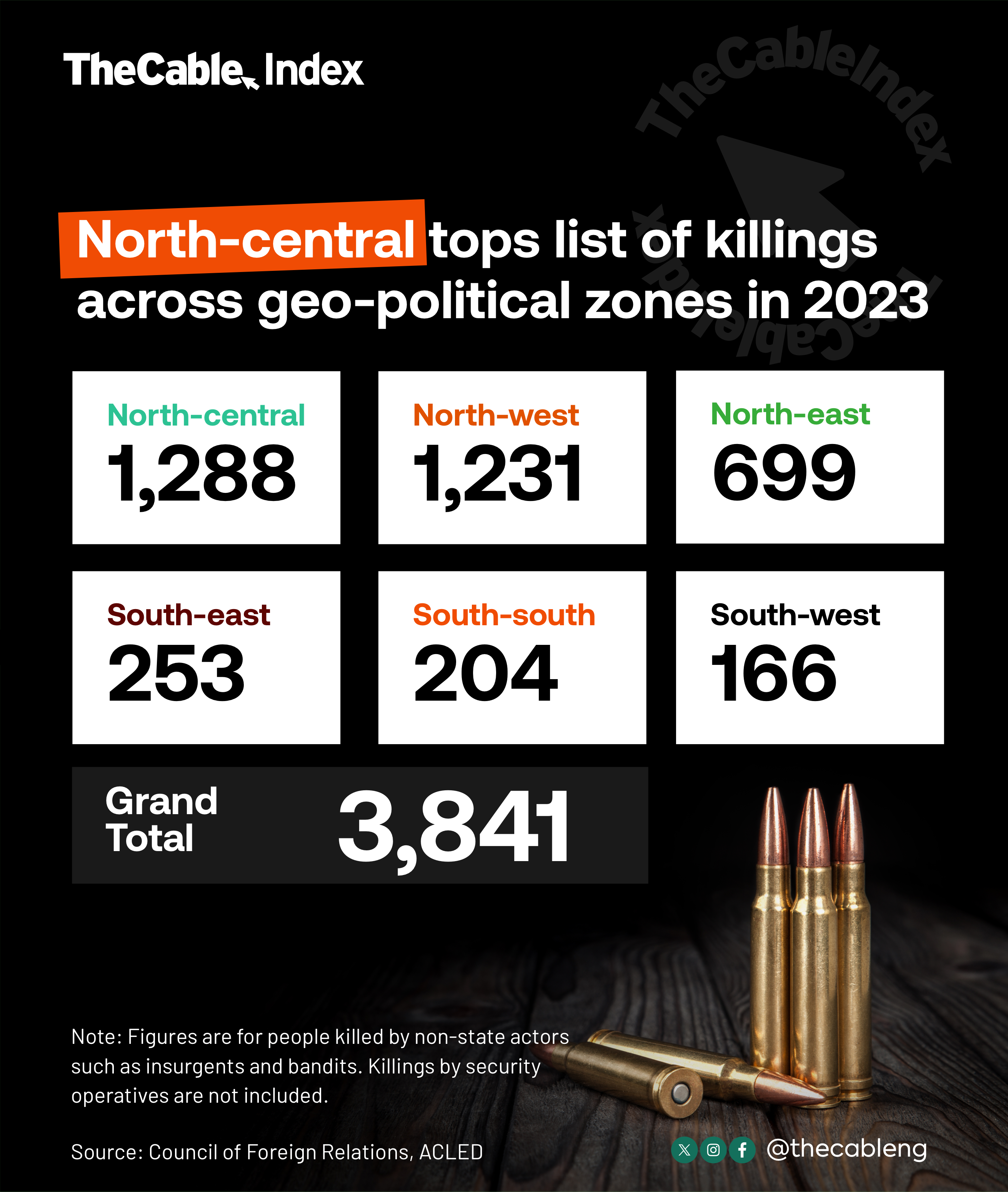
The south-east zone recorded the highest number of reported killings in the southern region, with 253 casualties. The south-east zone continues to witness the violent attacks perpetrated by the Indigenous People of Biafra (IPOB) and its militant group, the Eastern Security Network (ESN). The south-south recorded 204 deaths, while the south-west recorded the least number of deaths with 166 casualties.
THE KIDNAPPING SECTOR CONTINUES TO BOOM IN NIGERIA
In the period under review where 4,253 people were reported to have been kidnapped in the 36 states and the FCT, most of the victims paid ransoms to their abductors as huge amounts of money exchanged hands.
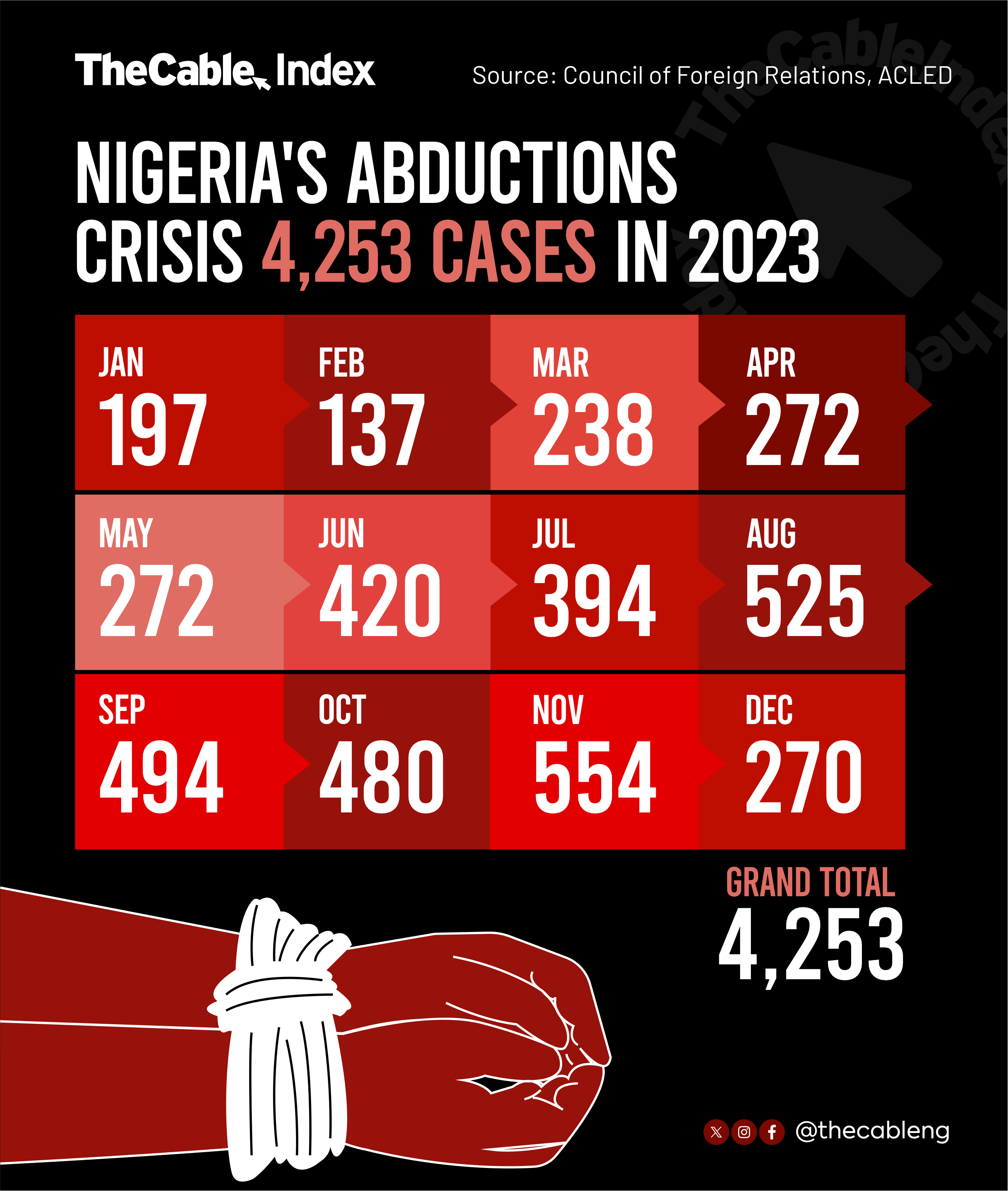
Zamfara recorded the highest number of people kidnapped, with 854 victims, followed by Kaduna with 672 victims; 425 people were kidnapped in Niger; and Sokoto recorded 359 victims.
Yobe, Bayelsa, and Gombe recorded the least number of reported kidnappings, with two victims each, while two people were kidnapped in Oyo.
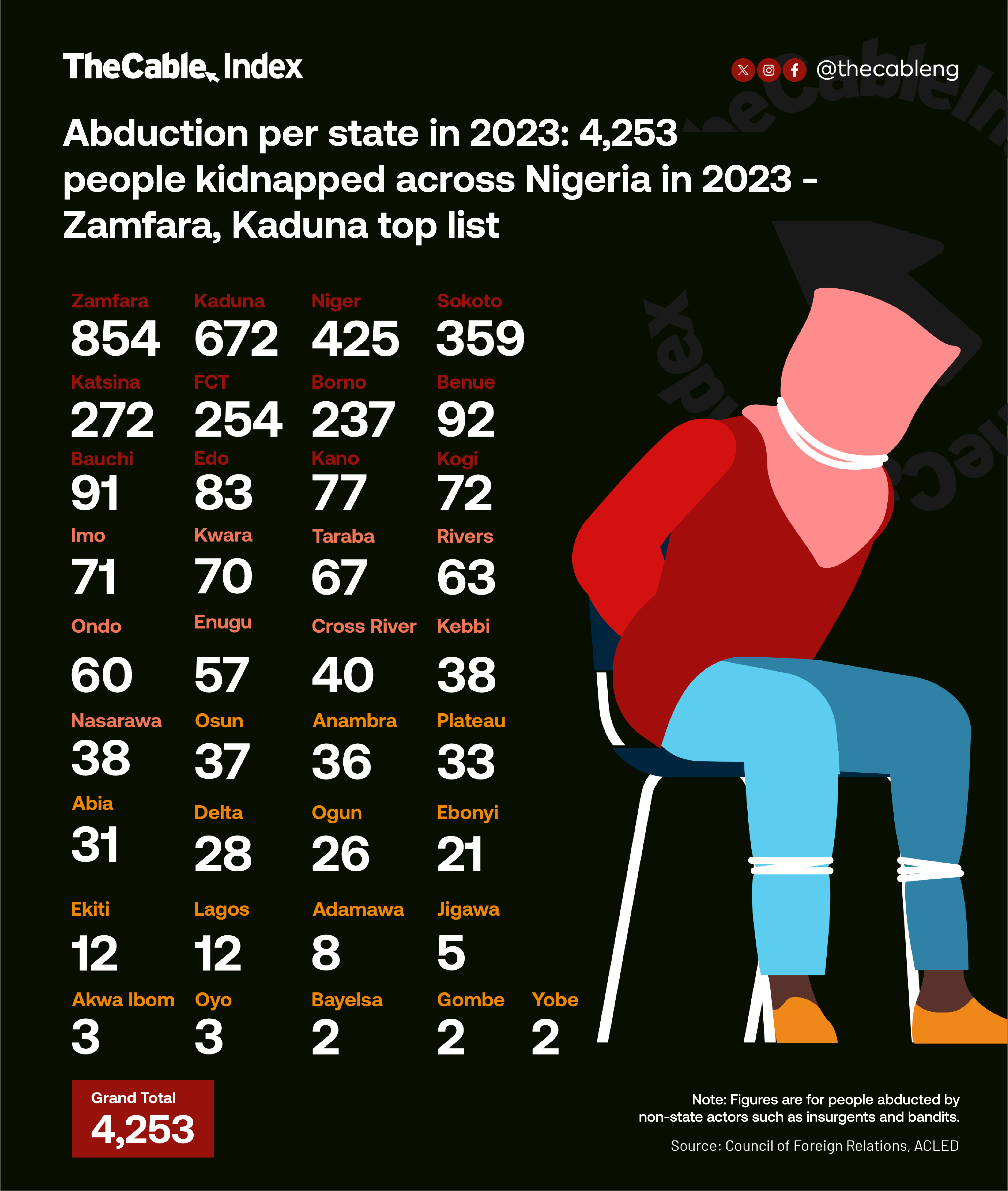
‘SECURITY CHIEFS NEED TO FOCUS ON PROACTIVE MEASURES’
Emeka Okoro, a security analyst with SBM Intelligence, a research firm, told TheCable Index that the present security situation in the country is hydra-headed and requires proactive measures.
Okoro said the President Bola Tinubu-led government needs to take a huge step at curtailing the daily killings and kidnappings.
“The above analysis simply paints a very ugly picture of the state of insecurity in Nigeria as we had it in 2023. Since 2011, there has been a steady rise in insecurity, and it got to its peak last year, especially during the third and fourth quarters of the year,” Okoro said.
“We had hopes that the present administration would come in with ideas that would help tackle this problem headlong, but with almost 8 months gone already, no meaningful achievement has been made. All we have witnessed is a spike in the number of incidents and casualties across the country.
“The ineffective and deteriorating security climate across Nigeria has offered these armed bandits the opportunity to perpetuate their agenda. This has led to a huge humanitarian crisis in the region, where many people have been displaced due to these problems. The southern part is not left out, though it accounts for far less compared to the northern part.”
As things stand, 2024 seems not to offer any respite as killings across the country continue unabated.
Add a comment
